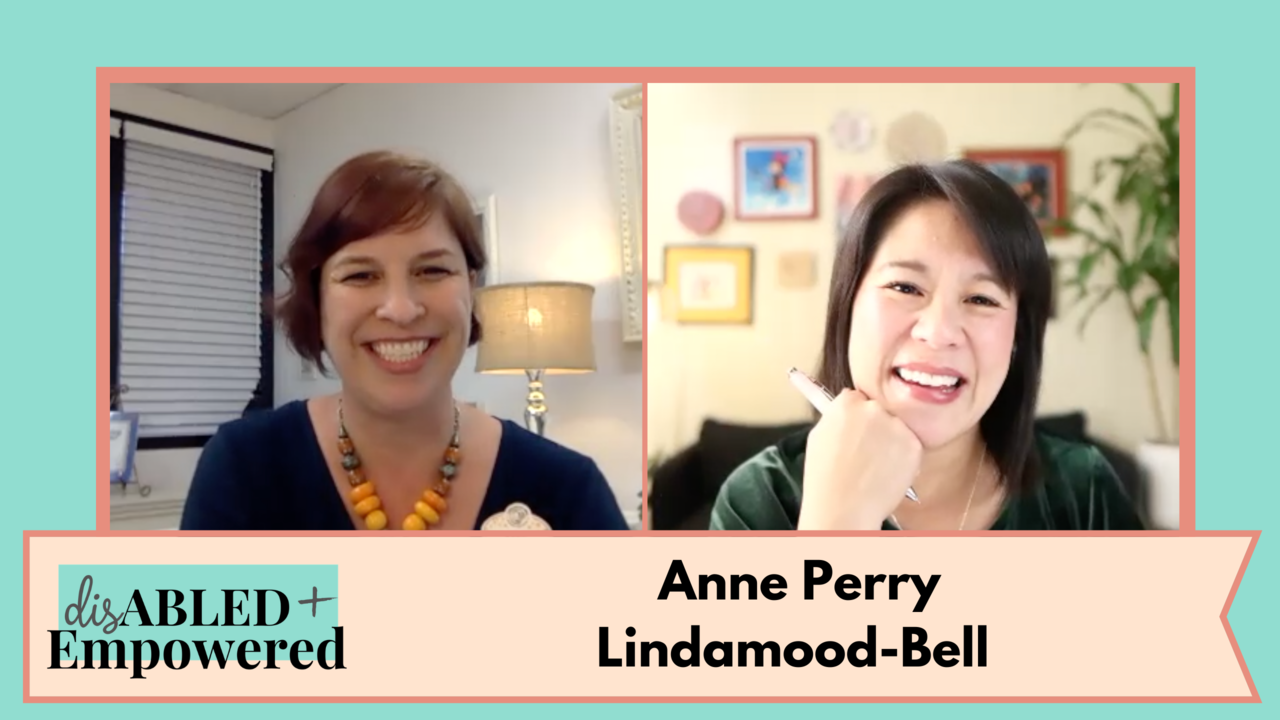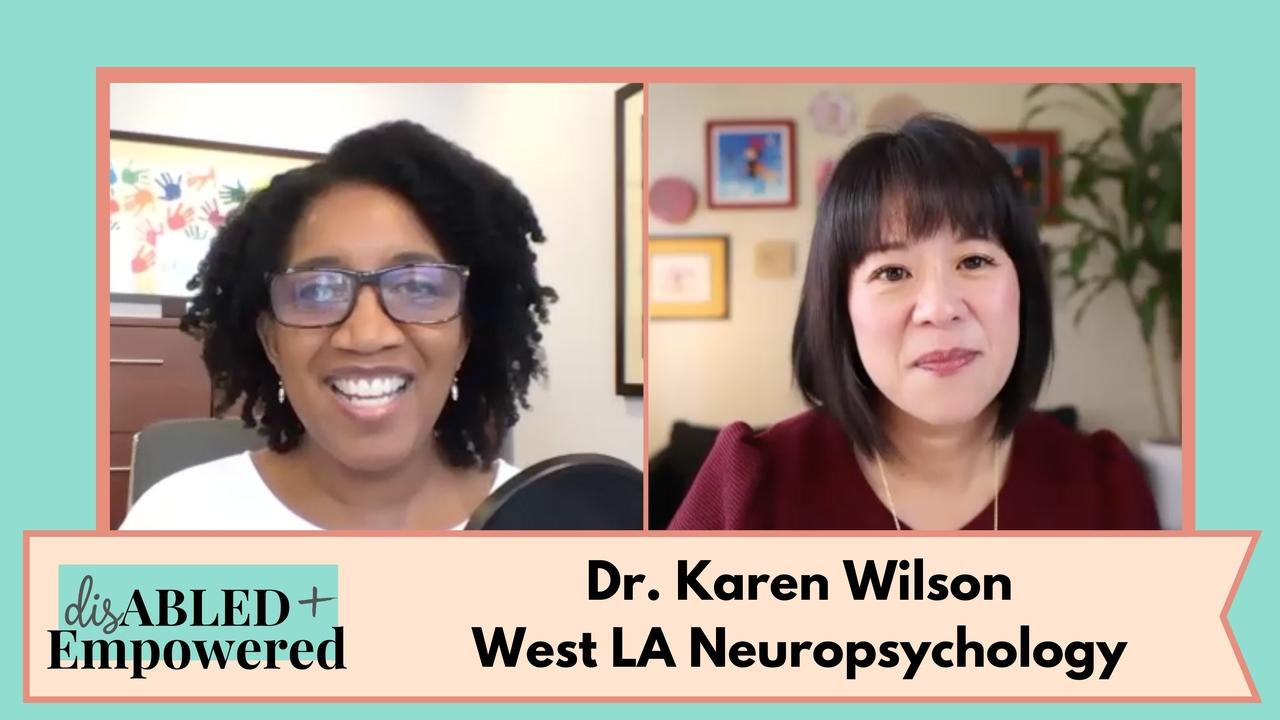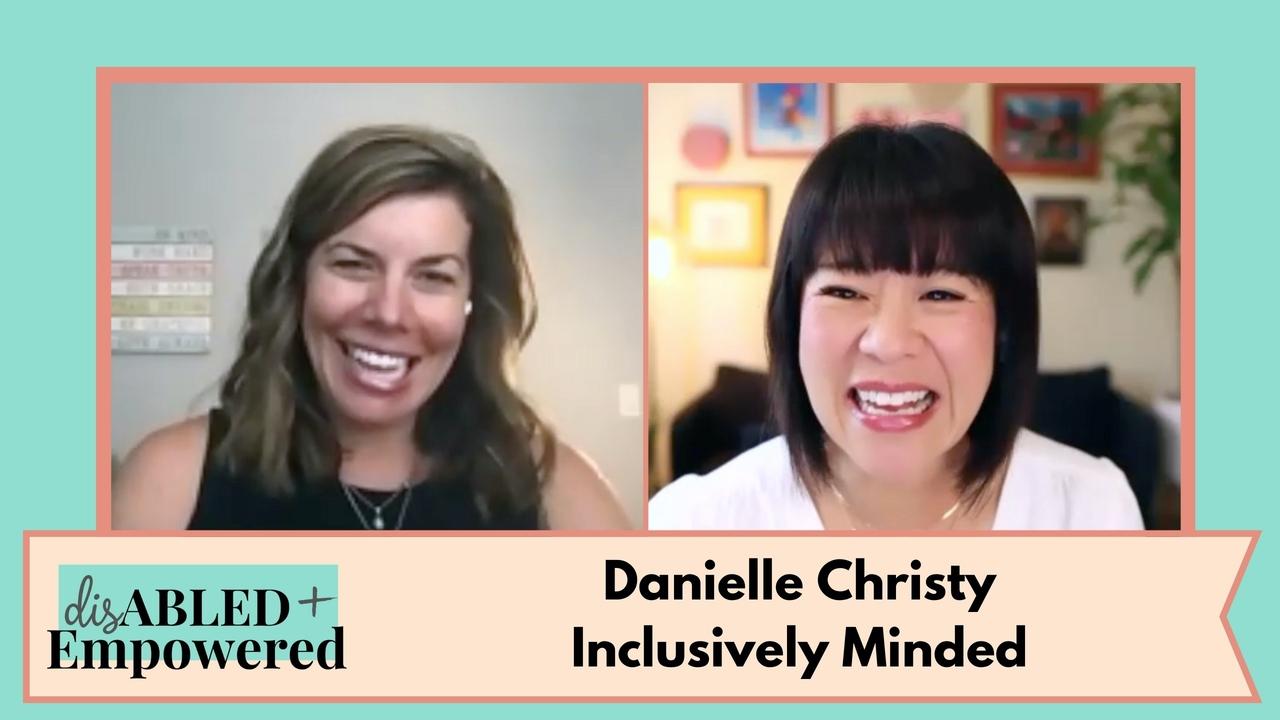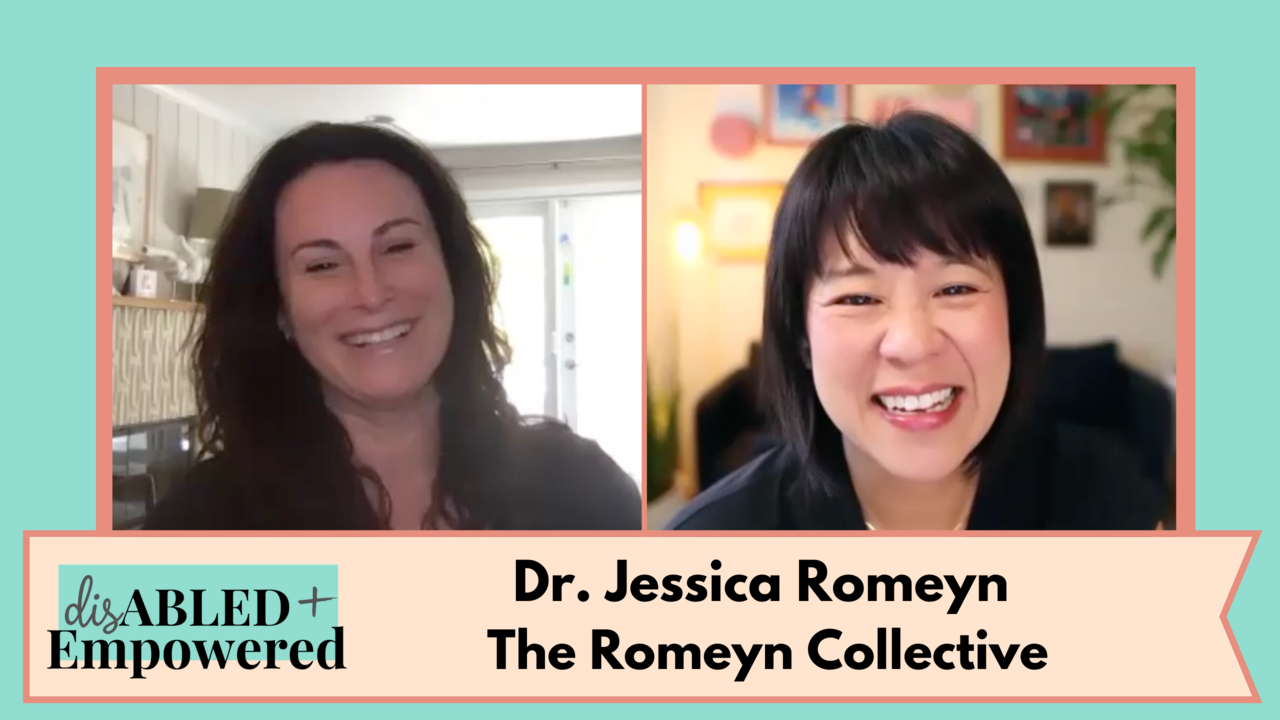Sex & Relationships Series: Dating for Neurodivergent Adults with Dr. Jamie Barstein
Dating when Neurodivergent
In this episode, Dr. Jamie Barstein and I talk about Dating in our ongoing Sex and Relationship series. We discuss dating myths surrounding neurodivergent and autistic individuals, barriers to dating for this population, and tangible ways to improve relationship skills. Ultimately, we hope that our conversation spurs some ideas and brings hope to those who deeply want connections with others. Jamie and I always have such a blast geeking out together. We're definitely continuing our series...hmmm...what will we do next?
To find out more about Dr. Barstein, check out AdvanceLA.
Communication Challenges, Presuming Competence, and Supported Decision Making with Darlene Hanson

Everyone communicates, we just have to listen
In this episode, I interview Darlene Hanson, a seasoned speech and language therapist who has helped limited communicators find and use their voice for decades. Darlene helps us understand that everyone has something to say and we can understand them if we listen. This interview is jam-packed with mindsets that are critical for any ally or professional who supports neurodivergent or disabled individuals. From presuming competence, to the difference between unreliable vs. limited speech, to considering supported decision making as a replacement for conservatorship, Darlene's thoughts and words challenge current belief systems and are a call to action to change how we support individuals with communication challenges. Darlene is a beacon for this community, helping individuals who are often unseen and unheard find their voice and place in this world. Spending time with Darlene is always a joy and I always walk away with wanting to do better....
Transition Assessments, Key Employment Skills, and Informed Choice with Bruce Bloom

It's about the apple, not the apple slices
In this video, I interview Bruce Bloom, a Vocational Expert, Certified Rehabilitation Counselor, Certified Autism Specialist, and CEO of Bloom Consulting. Bruce is an incredible resource and a light in the disability community, proudly placing over 1500 disabled and neurodivergent individuals in competitive employment over the past 10 years. Bruce's passion for his work and expertise is evident. His knowledge of the vocational space, especially as it intersects with disabilities, is sought after across the nation. School districts all over the nation hire him to conduct transition assessments. He's a legend. Bruce was instrumental in informing and shaping my approach to transition assessments and continues to offer his generosity of time and talent today. For this, I am truly and deeply grateful. Watch the full interview to understand one of Bruce's mantras, "It's about the apple, not the apple slices."
Check out Bruce and all of the w...
How Does Reading Develop? Can Reading Problems be Treated? | An Interview with Anne Perry from Lindamood-Bell

Geeky magpie
In this week's interview, I had the privilege of interviewing Anne Perry, Center Director of Lindamood-Bell's (LMB) Pasadena learning center. A self-proclaimed lifelong educator and geeky magpie, Anne sees her role as making complicated things simple. She fulfills her promise as she spends time helping me better understand how reading develops, which I learned, is a complicated process.
How does reading develop?
It turns out that our reading skills start with hearing sounds in utero. These sounds, which are further explored through singing, talking, and playing with infants, set the foundation for our overall language acquisition. Sounds are the first component of reading.
Enter school. Now, sounds are paired with symbols (letters) and an old part of the brain that was once used primarily for survival is tasked with a new job...to read. Symbol imagery (holding an image in your mind) is paired with sounds with added rules (phonemic awareness). This abrupt change from ...
When do I Need a Neuropsychological Assessment? How Can the Results be Used to Change my Life?

Special Ops
I hit the lottery when Dr. Karen Wilson, a Pediatric Clinical Neuropsychologist from West LA Neuropsychology, agreed to spend time with me for this episode. I think I have a thing for Neuropsychologists. Even though I've interviewed another Neuropsychologist on my channel, I'm always drawn to the way Neuropsychologists think, analyze, and evaluate. They expand my thinking and mesmerize me with their skills. They're like the special ops of psychologists (oh wow, I just made psychologists sound so cool...nice move, me!).
In this episode, Karen helps me split hairs. We talk about how Neuropsychologists are different than Clinical Psychologists and School Psychologists. It comes down to 1) having a doctoral degree and clinical training as a psychologist and then 2) going the extra distance with 2-3 years of laser-focused training in neuropsychology, which (over)simply put, is how the brain develops at different times and what can happen functionally when development is inter...
What is a Daily Money Manager and When do you Need One? An Interview with Sheri Samotin

What is a Daily Money Manager?
One of the perks of my job is to be able to learn from people like Sheri Samotin. Sheri, the President of LifeBridge Solutions and author of Facing the Finish: A Roadmap for Aging Parents and Adult Children, specializes in transition planning and is an expert at supporting individuals and families in the area of personal finances, asset management, and coordinating care.
Since I mostly work with disabled adults, I became fascinated with two professional hats that Sheri wears (and Sheri has more). Sheri is a professional Certified Daily Money Manager. A Daily Money Manager helps people with their day-to-day personal finances. In this role, Sheri helps individuals make and stick to budgets. Sheri's over 10-year experience supporting individuals with Intellectual Disabilities, Developmental Disabilities, substance use, and mental health disorders is evident as she confidently understands how to most effectively support her clients with proven strategies an...
What is Inclusion, Why it's Important, and How to Achieve it? An Interview with Danielle Christy

What is Inclusion?
I had the distinct pleasure of spending some quality time with Danielle Christy, a Licensed Educational Psychologist (LEP) with over 15 years in the public, non-public, charter, and contained school settings. Her specialty? Inclusion.
Across the many years of my practice as a Clinical Psychologist with a niche in neurodevelopmental disabilities, I hear the word "inclusion" tossed about. Even though I've spent a lot of my professional career in a classroom, I'm not an educator, so spending time with Danielle, who is an expert on inclusion, was enlightening and it was high time that I did a deeper dive.
According to Danielle, Inclusion is made up of some key components. First and foremost, presume competence. No matter the disability, socio-economic status, or race, believe in the potential of every child, every student...and well, every person. Second, all students should have equal access to the curriculum and supports to access curriculums. Third, equip every te...
What is a Therapeutic & Educational Consultant? An Interview with Dr. Jessica Romeyn

Boots on the Ground
It is my distinct pleasure to welcome Dr. Jessica Romeyn to the disABLED+Empowered channel. Jessica and I go waaaay back. We met during our internship year of training, where we both cut our professional teeth. Even back then, Jessica was passionate, savvy, vibrant, and wickedly smart.
In this interview, we get into what a Therapeutic and Educational Consultant is. I continue to meet plenty of people that don't know what this type of consultant is or that they even exist. Enter, Jessica. She helps me add some definition to this newer professional specialty. Spoiler? Educational Consultants are professionals who help individuals and families find the right school, college, or program when traditional approaches or settings aren't working. Jessica adds the "Therapeutic" title because she brings clinical training to the role and is an expert at supporting individuals with mental illness or dual diagnoses.
If you watch or listen to the interview, it's easy to see h...
